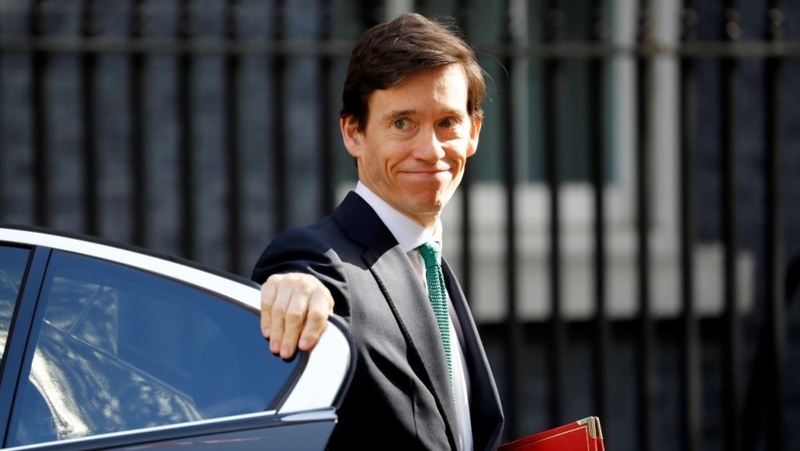Jonathan Schofield muses on Rory Stewart and the tiny tiny voice of 15.4 million people
Timing is everything.
Thus, on 29 May 2019, Conservative leadership candidate, Rory Stewart, was broadcasting from Warrington talking about under investment in the North and saying: ‘Let’s get the Northern Powerhouse powered up again’.
Less than a fortnight later, thirty or so newspapers and news websites in the north of England almost repeated Stewart verbatim, with front pages demanding a new Prime Minister must ‘Power up the North’. The group even gave themselves the latter title.
18 of the 22 elected members of the Cabinet represent areas south of Birmingham: only one has a northern seat
Stewart, the 46-year-old Etonian with the winning grin, has, it appears, the power of foresight to add to his many gifts. He’s also a Northern English MP and he’s in the Cabinet. That makes him a rare beast, maybe he should be given ‘at risk’ status. He’s even rarer in that he’s the only one of the leadership candidates to emphasise again and again the need to re-balance Britain, get the North of England fighting fit and make it a real economic force. This needs to happen; the North is too big to be in the relative doldrums. The population, according to 2017 stats, is 15.4m. That’s three times bigger than Scotland, the same as Denmark and Sweden combined, almost the size of the Netherlands.
Of course, most things are off the government agenda while the UK is lost in the obfuscating fog of Brexit, but why does the voice of the North of England seem particularly absent? A look at the composition of the current Cabinet of twenty-two elected MPs and their constituencies is instructive:
Theresa May, Maidenhead. Philip Hammond, Runnymede and Weybridge. Jeremy Hunt, West Surrey. Stephen Barclay, North East Cambridgeshire. Penny Mordaunt, Portsmouth North. David Gauke, South West Hertfordshire. Matthew Hancock, West Suffolk. Damian Hinds, East Hampshire. Liam Fox, North Somerset. Greg Clark, Tunbridge Wells. Michael Gove, Surrey Heath. Chris Grayling, Epsom. James Brokenshire, Hornchurch, London. Jeremy Wright, Rugby and Kenilworth. Amber Rudd, Hastings and Rye. David Lidington, Aylesbury. Brandon Lewis, Great Yarmouth. Alun Cairns, Vale of Glamorgan. David Mundell, Dumfriesshire, Clydesdale and Tweedale. Sajid David, Bromsgrove. Karen Bradley, Staffordshire Moorlands. Rory Stewart, Penrith and The Border.
Take the Scottish and Welsh secretaries out of the equation, then we’re getting warmer with Karen Bradley who occupies a north Midlands’ seat, but there is only Rory Stewart with a Northern constituency.
So, eighteen of the 22 elected members of the Cabinet represent areas south of Birmingham. Of course, this shouldn’t matter. The Cabinet should look after the interests of the country at large, they probably feel they do, within the strictures of their own politics. Yet direct experience informs more than any number of reports and briefings. Few in the Cabinet have experienced the hollowing out of so many northern towns (rather than the big cities) into resource-poor, decaying communities.

The Power up the North group has called for: infrastructure enhancement with a ‘northern powerhouse rail’ a national priority; a bespoke industrial strategy from manufacturing to farming; investment in education; an affordable house building programme; a boost to the North’s digital infrastructure; and a commitment to ‘to fully devolve the ‘shared prosperity fund’, intended to replace EU structural funding, in long-term tranches to enable strategic decisions of scale rather than areas having to bid piecemeal for smaller amounts.
Nice ambitions. But who will make the case for the North at the top table of national governance? Perhaps the call by Power up the North for the present Northern Powerhouse Minister, Jake Berry, to be given Cabinet status, with full powers, is the key. Currently Berry’s job sits outside the Cabinet and, laughably, comes with no budget. It carries as little punch as most of the Northern Powerhouse initiative. Remember that? The Northern Powerhouse idea was instigated by the then Chancellor of the Exchequer, George Osborne, in June 2014. Yes, five years ago. Look around, folks, spot the difference.
Jake Berry’s role is one thing, how much more enhanced would the position of the North be, if the Prime Minister had his eye firmly on the North of England (after doing whatever needs to be done to resolve Brexit). Perhaps, the 40 Northern Conservative MPs, should be looking to what comes after Brexit, and casting their votes for Rory Stewart when the leadership ballots begin on 13 June. Unfortunately, even as I write, Berry has said he's backing Boris, who still calls the North of England ‘the North Country', like a character in a PG Wodehouse novel.
If by some miracle Stewart were to be one of the last two candidates standing, then the northern party membership of the Conservative Party might want to think about supporting him too.
Of course, all this is unlikely.
Stewart is too clear on his ‘no-deal is not an option' stance for many crusty old Tory members. He also palpably comes across as the one candidate for the leadership of the Conservatives, and thus Prime Minister of the UK, who appears to be putting the country before the party and/or themselves. One of the more distressing sights in the leadership campaign is the impression most candidates give of doing the reverse. This is certainly the case with the other northern leadership candidate, ranty Esther McVey, the Tatton MP.
The Power up the North group has raised issues that need urgently addressing across our 15.4m population. The problem is the English regions, including the component parts of the North, have in recent administrations had too small a voice in 10 Downing Street and the Cabinet Office. Worse, despite the promise of the Northern Powerhouse, that voice has never been as tiny as it is in 2019.
Have your say. Let us know in the comments below if you think the North is under-represented in Parliament.













